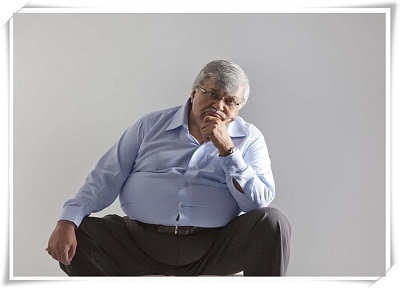Testis Becomes Smaller After Epididymitis Cure, What to Do?
After epididymitis is cured, you should pay attention to your conditioning methods. If the testicles become smaller or other discomforts occur during this period, you should have a timely examination to prevent other diseases. And you should pay attention to your physical condition during the treatment of epididymitis.

If you have poor health at this stage, you should also take proper care of your body to strengthen it. This will help to help the condition recover in time. Here are the professional suggestions from Wuhan Dr. Lee's TCM clinic.
Treatment method for testis becoming small after epididymitis cure.
This is most likely due to swelling reduction, so patients should pay attention to their swelling reduction at this stage. It's normal if it's caused by detumescence. During this period, patients do not have to worry because only normal conditioning can achieve the recovery effect. If the testicular shrinkage is obvious and accompanied by physical discomfort or urinary disease, appropriate examination and treatment should be conducted. This can help with recovery and prevent the further effects of the disease.
The treatment of epididymitis has become easier and easier with the improvement of medical standards. In the treatment process, patients should pay attention to choosing a regular medical team. In this way, you can reduce your burden and prevent testicular or urinary diseases. You should also maintain a good level of mood during the treatment phase. This can help the condition recover in time and avoid the occurrence of urinary diseases.
During the treatment of epididymitis, patients should pay attention to their sex life. It's better not to have sex at this stage. Having sex can lead to worse wounds or infections. So good nursing measures are also conducive to timely recovery. And at this stage, they should be on a diet and not eat cold or stimulating food.
TIPS:
Patients should pay attention to their urinary health during testicular treatment. During treatment, especially avoid alcohol and tobacco, and refrain from sexual intercourse and masturbation. In addition, patients with a history of orchitis and fertility requirements should have a routine semen test before pregnancy to see if it affects the quality and quantity of sperm. And whether there is oligospermia, asthenospermia, sperm non-liquefaction, low sperm motility, and other problems. Both of these can help with treatment and recovery.
Improve diet during treatment. Patients should pay attention to the intake of high-cholesterol food, eat less spicy, sour, cold, and other irritants, and do not eat fish, red meat, and other annoyances. Remember to eat plenty of fresh vegetables and fruits. At the same time, they should keep a good mood. Also, they can adequately participate in sports activities such as breathing techniques and Tai Chi to strengthen their physique and prevent colds. Moreover, they must live a regular life and keep their bowels smooth. All these can help to improve local resistance.
For the treatment of orchitis, it is recommended to take the traditional Chinese medicine Diuretic and Anti-inflammatory Pill, which has a good effect on promoting blood circulation, removing blood stasis, and relieving pain.
It can effectively relieve patients' pain and eliminate the symptoms related to epididymitis in the patient's body, and it will not harm the body. It needs to be strictly controlled and taken orally. With its broad-spectrum antibacterial properties, Diuretic and Anti-inflammatory Pill can kill all kinds of bacteria and viruses causing diseases of male urinary and reproductive system, as well as pathogens such as mycoplasma and chlamydia.
From clinical practice, Diuretic and Anti-inflammatory Pill can be good treatment of male epididymitis. And it can completely cure the disease to prevent recurrence.
You may also be interested in:
Sweaty Testicles? Epididymitis or Other Causes?
How to Relieve Epididymitis Pain While Walking?
Confirm Chronic Epididymitis But Normal Color Doppler Ultrasound, Is it Possible?



